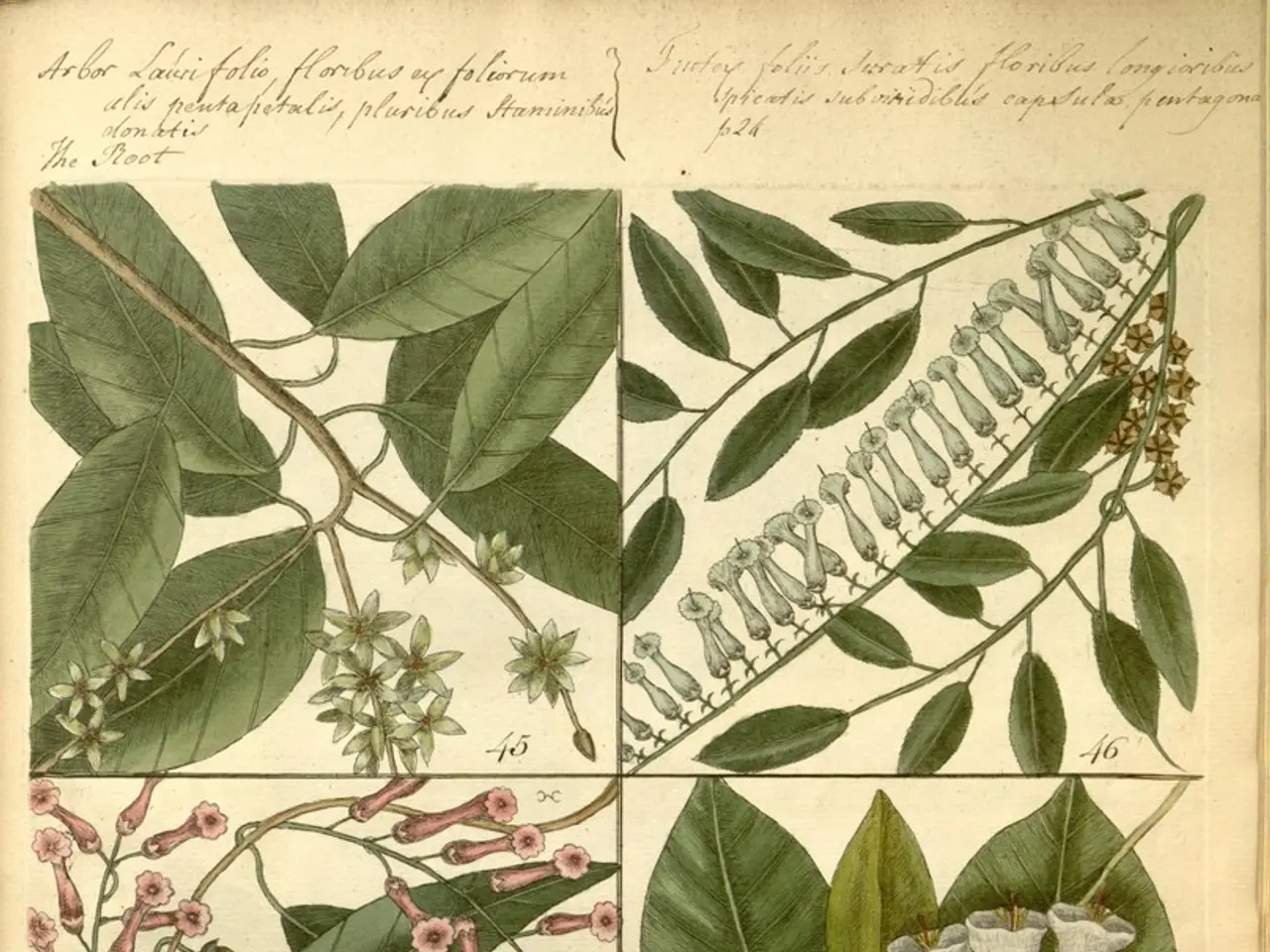Essential Insights on Employing Worm Compost for Your Floral Growth
Vermicompost, the end result of composting organic material with various types of worms such as red wigglers or earthworms, is a valuable resource for gardeners and plant enthusiasts. This nutrient-rich substance has all the properties of humus soil, including the ability to retain water while allowing for proper drainage and oxygen gaps.
When red wigglers consume food particles, they transform into a nutrient-rich cast that contains all necessary ingredients for plant growth. This homogeneous blend of decomposed vegetable and food waste, bedding materials, and manure is a suitable organic fertilizer for seed-starting mix due to its nutrient-rich properties.
To use vermicompost effectively as a plant fertilizer, follow these methods and best practices. Application methods include mixing with soil, top dressing, compost tea, potting mix additive, and using it as a soil amendment. By blending vermicompost with soil in a ratio of about 1 part vermicompost to 3-4 parts soil, you enhance seedling conditions and overall soil fertility.
Vermicompost offers numerous benefits to plants. It enriches the soil with essential nutrients like nitrogen, phosphorus, potassium, and micronutrients crucial for plant growth. It also enhances soil structure, water retention, and aeration, promoting healthy root proliferation. Vermicompost provides natural plant growth hormones that stimulate seed germination and plant development, and increases beneficial microbial populations, contributing to plant immunity and protection against diseases and pests.
When using vermicompost, it's essential to follow best practices. Use vermicompost regularly but in moderate amounts; excessive application is not necessary. Avoid using vermicompost from oily or fatty food waste, as it can harm earthworms and soil health. Maintain moisture in the soil; vermicompost performs well when the soil is neither too dry nor waterlogged. Store vermicompost properly to avoid unpleasant smells and pest attraction.
Vermicompost aids in disease prevention due to its potency and creates an ideal environment for strong root growth and the absorption of growth-promoting building blocks in each plant. It slowly releases a perfectly balanced blend of nutrients that can stimulate growth and healing while also increasing flower and fruit production. The nutrients released in the red wiggler's gut result in a safe product that does not harm plants like commercial fertilizers can.
Lightly sprinkling vermicompost at the base of tired plants and creepers results in a noticeable improvement in plant vigor. When used for transplants, plants are less likely to experience shock and have a far superior rate of survival compared to those who do not receive any 'fertilizer' treatment.
In conclusion, vermicompost serves as an excellent organic fertilizer that improves soil quality and promotes sustainable, healthy plant growth. By following these guidelines, gardeners can harness the power of vermicompost to cultivate thriving, vibrant plants.
- Plants grown in soil enriched with vermicompost benefit from essential nutrients like nitrogen, phosphorus, potassium, and micronutrients.
- A nutrient-rich substance called vermicompost is the byproduct of worms, such as red wigglers, breaking down organic matter, and it can be used as an organic fertilizer for seed-starting mix.
- To optimize the effects of vermicompost, it's recommend to blend it with soil in a ratio of approximately 1 part vermicompost to 3-4 parts soil to enhance seedling conditions.
- Vermicompost helps to promote healthy root proliferation and provides natural plant growth hormones that stimulate seed germination and plant development.
- It's essential to use vermicompost regularly but in moderation, and to avoid using it if it's derived from oily or fatty food waste, which can harm earthworms and soil health.
- In the home-and-garden sector, vermicompost is considered a valuable resource for plant enthusiasts and gardeners due to its ability to improve soil structure, water retention, and aeration.
- Lightly sprinkling vermicompost at the base of tired plants can improve their vigor, and using it as a fertilizer for transplants reduces shock and increases the survival rate.
- Ultimately, vermicompost can help gardeners cultivate thriving, vibrant plants by improving soil quality and promoting sustainable, healthy plant growth.




